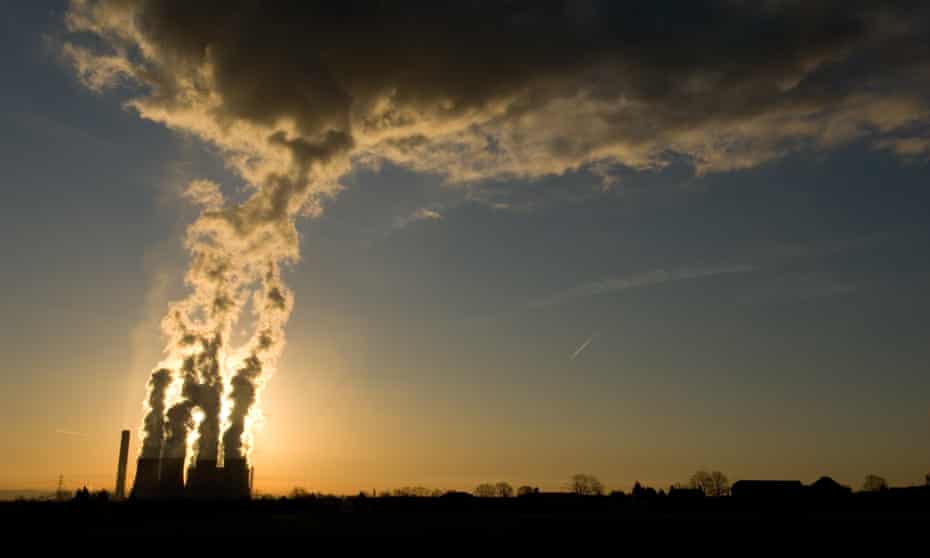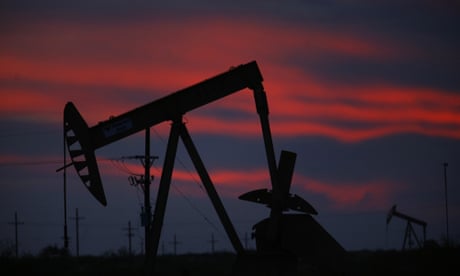Extract from The Guardian
The data send a ‘stark’ message to the nations tasked with increasing action at the Cop26 climate summit, UN meteorology chief says

Last modified on Tue 26 Oct 2021 03.55 AEDT
Levels of climate-heating gases in the atmosphere hit record levels in 2020, despite coronavirus-related lockdowns, the UN’s World Meteorological Organization has announced.
The concentration of carbon dioxide, the most important greenhouse gas, is now 50% higher than before the Industrial Revolution sparked the mass burning of fossil fuels. Methane levels have more than doubled since 1750. All key greenhouse gases (GHG) rose faster in 2020 than the average for the previous decade and this trend has continued in 2021, the WMO report found.
The data shows the climate crisis continues to worsen and send a “stark” message to the nations meeting at the Cop26 climate summit in Glasgow in a week’s time, according to WMO chief Prof Petteri Taalas: “We are way off track.”
The negotiators at the summit must deliver action to keep alive the goal of ending GHG emissions by 2050 and avoiding the worst climate impacts. Only stopping emissions will stabilise the levels of the gases and halt the temperature rises that drive the increasing damage from heatwaves, floods and droughts.
“At the current rate of increase in GHG concentrations, we will see a temperature increase by the end of this century far in excess of the Paris Agreement targets of 1.5C to 2C,” said Taalas. “[Rising levels of GHGs] have major negative repercussions for our daily lives and wellbeing, and for the future of our children and grandchildren.”
“It is hoped Cop26 will see a dramatic increase in commitments,” he said. “We need to transform our commitment into action that will have an impact on GHGs. We need to revisit our industrial, energy and transport systems and whole way of life – the needed changes are economically affordable and technically possible. There is no time to lose.”

The burning of coal, oil and gas is the biggest source of CO2, which is the cause of 66% of global heating. CO2 emissions fell by about 5% in 2020 due to Covid restrictions, compared to 2019. But many billions of tonnes of CO2 were still pumped into the atmosphere, meaning the Covid economic slowdown “did not have any discernible impact on the atmospheric levels of GHG and their growth rates”, the WMO said.
About half of the CO2 from human activities remains in the atmosphere, with the other half soaked up by oceans and trees and plants on land. But the WMO warned that global heating is damaging the ability of the natural world to take up emissions with, for example, the Amazon now having flipped from absorbing CO2 to emitting it as wildfires, droughts and logging destroy trees.
The other major GHG is nitrous oxide, responsible for 7% of global heating. These emissions mostly come from the overuse of chemical fertilisers in farming and cattle manure. The GHG data is collected by the WMO’s Global Atmosphere Watch Programme.
Levels of atmospheric GHGs are higher than ever experienced by the human race, and the highest for 3-5 million years. At that time, global temperature was 2-3C hotter and sea level was 10-20 meters higher than today, said Talaas: “But there weren’t 7.8 billion people then.”
“The true success, or failure, of Cop26 will be written in our skies in the form of greenhouse gas concentrations. This WMO report provides a brutally frank assessment of what’s been written there to date. So far, it’s an epic fail,” said Prof Dave Reay, at the University of Edinburgh.
“The small window of opportunity to stabilise greenhouse gas concentrations at a level that meets the Paris climate goals is about to vanish,” he said. “Will this 26th Cop find success where the previous 25 have fallen short? Our atmosphere will bear witness.”
No comments:
Post a Comment